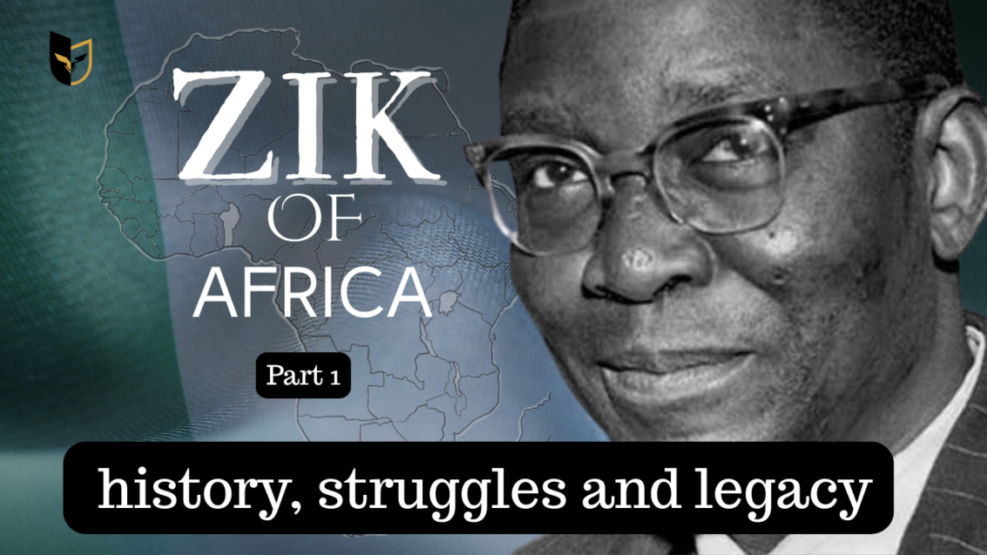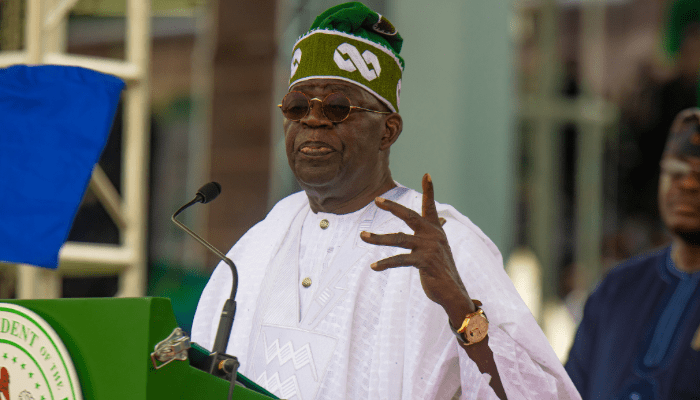No products in the cart.


Inauguration day is often a day of great promises. It is always colourful and pleasant, filled with pomp and circumstance. The inauguration of Bola Ahmed Tinubu as the new president of Nigeria offered such hope as he proposed, filled with colours but devoid of splendour as there was tight security around the Eagle Square, the venue of the inauguration. He adorned the national colour of white and with his iconic insignia on his green cap.
Green signifies hope and white signifies peace.
Inaugural speech is an embodiment of the vision of the incoming authority. In his 1,979 words of speech titled; “The Nigerian Ideal”, Tinubu touched on some aspects of his thoughts which were coloured with calmness and appealed to his fellow citizens to walk with him to achieve his dream of an ideal Nigeria.
Though his voice was affected with frailty, it slurred a bit, he delivered his speech with passion and boldness and clarity with air of; this is my time.
President Tinubu first of all acknowledged the supremacy of God, praised his creation of ‘bold and majestic’ day as he termed it a “sublime moment where the prospect of a better future merges with our improved capacity to create that future”. He celebrated the peaceful transition and talked hopefully to Nigeria on a destination which its people will strive to continue building. He acknowledged the suffering of Nigerians and their prayers for a country on a continuous march to meet its potential while affirming its unity.
“We are too great a nation and too grounded as a people to rob ourselves of our finest destiny. As citizens, we declare as one unified people devoted to one unified national cause, that as long as this world exists, Nigeria Shall Exist. Today, Fate and Destiny join together to place the torch of human progress in our very hands. We dare not let it slip. We lift high this torch so that it might shine on every household and in every heart that calls itself Nigerian. We hold this beam aloft because it lights our path with compassion, brotherhood, and peace. May this great light never Extinguish.” he declared.
He re-acclaimed Nigeria’s standing as he stated, “For many years, Nigeria’s critics have trafficked the rumour that our nation will break apart, even perish.Yet here we are. We have stumbled at times, but our resilience and diversity have kept us going. Our burdens may make us bend at times, but they shall never break us. Instead, we stand forth as Africa’s most populous nation and as the best hope and strongest champion of the Black Race.”
Tinubu saw himself as a servant leader and pledged not to dictate but to maintain the ethos of representative leadership.
“Our administration shall govern on your behalf but never rule over you. We shall consult and dialogue but never dictate. We shall reach out to all but never put down a single person for holding views contrary to our own. We are here to further mend and heal this nation, not tear and injure it.”
In trying to be modest, Tinubu admitted that Nigeria has not held an ‘election of better quality’, but he claimed that the election was ‘hard fought’ as he ‘fairly won’ and ‘the outcome reflected the will of the people’.
Read Also: The tyranny of the Nigerian elite
The election was hard fought indeed but in no way near the president winning fairly or the outcome reflecting the will of the majority of the people. An election which was fairly won will not record many instances of violence, ballot snatching, voter suppression, and voter disenfranchisement, mutilations of results sheets and cutting of votes from other parties to be added to his votes.
BBC wrote that, “While the official result in this (Rivers) state gave a clear majority to Bola Tinubu of the ruling All Progressives Congress (APC), our tally suggested that Peter Obi of the Labour Party (LP) had actually received most votes in the state by a wide margin.”
This result coming from Rivers state was placed to scrutiny where blatant manipulation of results was obviously done. Other states, when scrutinised, could reveal further infractions.This does not reflect the will of the people. Remove at least the result of Rivers state from the president’s tally, the total votes will further deplete. “He won the elections with just 37 percent of the votes – the lowest of any elected Nigerian president since the handover from military to democratic rule in 1999. And as his inauguration got underway, the hashtag #Tinubunotmypresident started to trend on social media,” CNN reported. Secondly, the mood of Nigerians went flat and unassuring which defeats the claim of ‘will of the people.’
As Tinubu had charged his supporters to “grab it, snatch it and run with it” (the votes), it is obvious that a claim to have won fairly is the president ascribing credit where there is none and rewriting the outcome of the election to his favour.
The president extended a hand of fellowship to his political rivals, paid homage to the past leaders and founding fathers, while making an attempt to explain his Nigerian Ideal. He said, “the Nigerian ideal which I speak of is more than just an improvement in economic and other statistics. Our mission is to improve our way of life in a manner that nurtures our humanity, encourages compassion toward one another, and duly rewards our collective effort to resolve the social ills that seek to divide us.”
Key elements of his agenda are security, economy, jobs, agriculture, infrastructure, fuel subsidy and monetary policy with education and healthcare tied to successful subsidy removal. He enumerated the principles that will guide his administration; impartial governance according to the constitution and the rule of law, defend the nation from terror and all forms of criminality, remodel the economy to bring about growth and development, feature women and youth and champion a credit culture. His foreign policy is more Afrocentric as he pledged ‘peace and stability of the West African subregion and the African continent.’
Before becoming the president, Tinubu as the leader of All Progressives Congress (APC) had said in Thisday, “without true federalism being implemented in Nigeria, the country’s unity will constantly be shaken – true federalism in the country is the path to true nationhood.” This critical part of his agelong belief was left out in his inaugural speech which signalled a departure from that belief and possibility of restructuring.
Few hours after the inauguration, Nigerians were back to queues at the petrol stations with increased pump prices based on his statement that “fuel subsidy is gone” – without adequate plan to counter its impact, signalling a continuation of the chequered past 8 years of APC and Buhari administration. That has affected the promised renewed hope which did not outrightly reflect in the speech nor in the street.
Tinubu’s renewed hope has begun to wobble. And will it wobble to more hardship, poverty and failure?
Image credit: BusinessDay